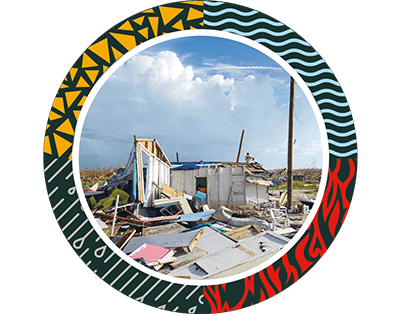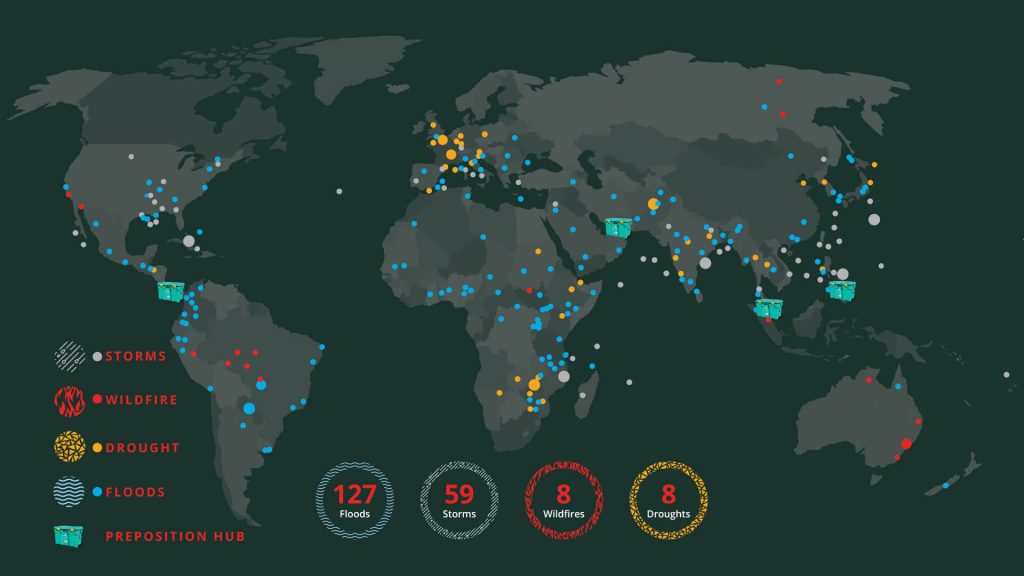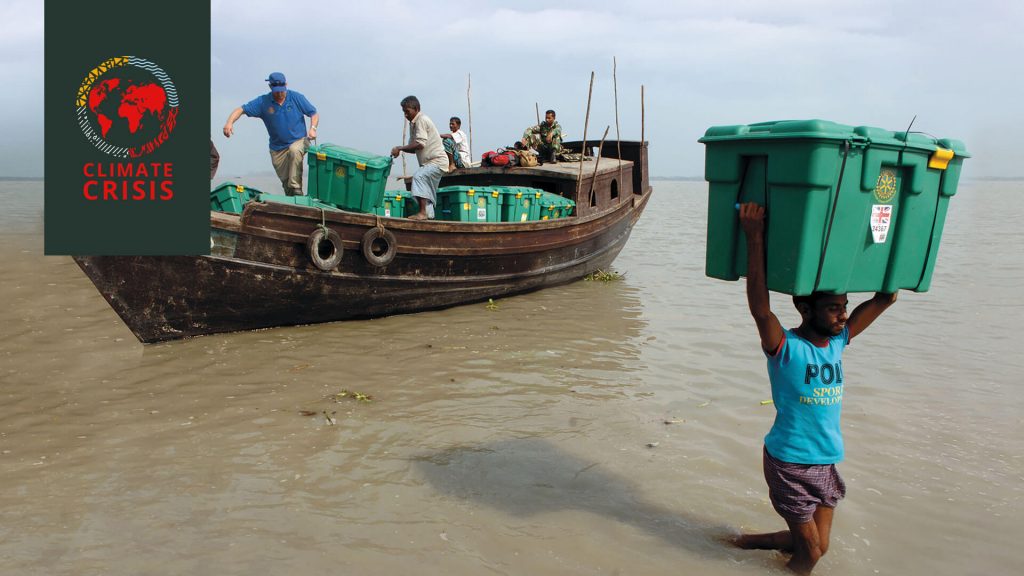Climate Change and Disasters
Climate change poses a significant threat to humanity. It is a threat which can only be tackled with immediate global action.
Right now, our changing climate is creating an unprecedented need for emergency shelter around the world.
Storms are getting stronger, creating cyclones and hurricanes that rip up homes. Global temperatures are increasing, leading to devastating droughts that destroy food supplies. And sea levels are rising, resulting in floods that wash away lives.
But this isn’t just a future problem: it’s happening now.
Every day, people are losing their homes to climate-related extreme weather events and conflict. Our changing climate is making it harder to live.
Read on to learn more and see how you can support families who are losing their homes today.

Last year, 30 million people were displaced by climate disasters like floods and tropical storms (IDMC’s GRID 2020). That’s more than one person forced to flee every second.

The average wildfire season is three and a half months longer than it was a few decades ago (NRC 2015)

The average annual number of destructive category 4 and 5 hurricanes has doubled in the last 35 years (NSF 2015)
This map tells a story of a single year (2019) in the life of our planet.
It shows that the climate crisis is a humanitarian crisis too. One that is affecting people the world over.
We must act now to make a difference.


We provide emergency shelter and tools for families who have lost their home to disaster, enabling them to rebuild their lives.
Supporting communities who have lost their homes to extreme weather events has been a significant part of our work for the last 20 years.
As the climate crisis continues to destroy homes and livelihoods, we are working to reach some of the world’s most vulnerable people. People who are bearing the brunt of the increase in extreme weather and the ravages of conflict.
Climate change poses a significant threat to humanity. It is a threat which can only be tackled with immediate global action.
It’s actually the decisions we make that create a disaster. Factors like living conditions and poverty, government capacity to prepare and respond, as well as the process of rebuilding and how efficient that would be, are all factors that will define whether a disaster occurs as a result of the natural hazard.
In April 2020, Cyclone Harold made landfall in Vanuatu as a Category 5 cyclone, bringing devastation to communities in the north. Harold destroyed thousands of houses, damaged food crops, and caused widespread power outages.
Small, everyday changes to our daily life can have a positive impact on the fight against climate change. Here are 7 simple ways to be more sustainable.
From 11-13 June, twelve world leaders will unite to tackle some of the biggest issues facing our world today. The UK will be joined by fellow G7 members Canada, France, Germany, Italy, Japan and the USA, with the EU also attending. Guest countries are Australia, India, South Korea and South Africa.
Climate change is happening at an unprecedented rate. Learn how it’s affecting families.